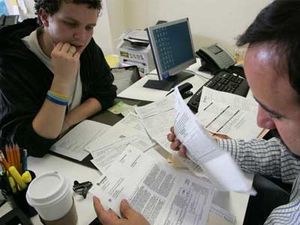The American Institute of CPAs reports the D.C. Circuit Court of Appeals has held that the IRS does not have the authority to regulate unenrolled tax return preparers.
The IRS had issued new regulations requiring unenrolled tax preparers to pass a certification test, take continuing education courses and pay an enrollment fee. CPAs, accountants and enrolled agents have higher levels of expertise needed for complex tax returns and have been subject to these regulations and more for many years.
An article in the Journal of Accountancy reports a lawsuit was filed by three unenrolled tax preparers who argued the IRS had no authority to enforce the regulations claiming that enforcement is the role of the Treasury Department.
The new court decision affirmed that the estimated 700,000 unenrolled preparers are not subject to IRS supervision because they only have limited taxpayer representation. It said their preparation work applied more generally to the calculated amount of taxes paid, which is under Treasury Department authority.
Unenrolled agents are not allowed to execute claims for refunds, receive refund checks, file extensions for assessments or collections, or handle IRS audits on the taxpayer’s behalf. They may only help a taxpayer calculate their tax liability for the taxable year of the return. Most storefront preparation services employ unenrolled agents who handle more simple tax returns.
 The IRS claims data shows returns filed by unregulated tax preparers contain more mathematical mistakes and have more errors regarding tax deductions and credits. While the court decision has delayed the most recent attempt to regulate all tax return preparers, it does not end ongoing efforts to protect taxpayers.
The IRS claims data shows returns filed by unregulated tax preparers contain more mathematical mistakes and have more errors regarding tax deductions and credits. While the court decision has delayed the most recent attempt to regulate all tax return preparers, it does not end ongoing efforts to protect taxpayers.
Meanwhile, taxpayers are reminded that no matter who prepares their return, they are ultimately responsible for the accuracy of their income tax return and are personally liable for any penalties or fees that result from errors.
 is now
is now 
